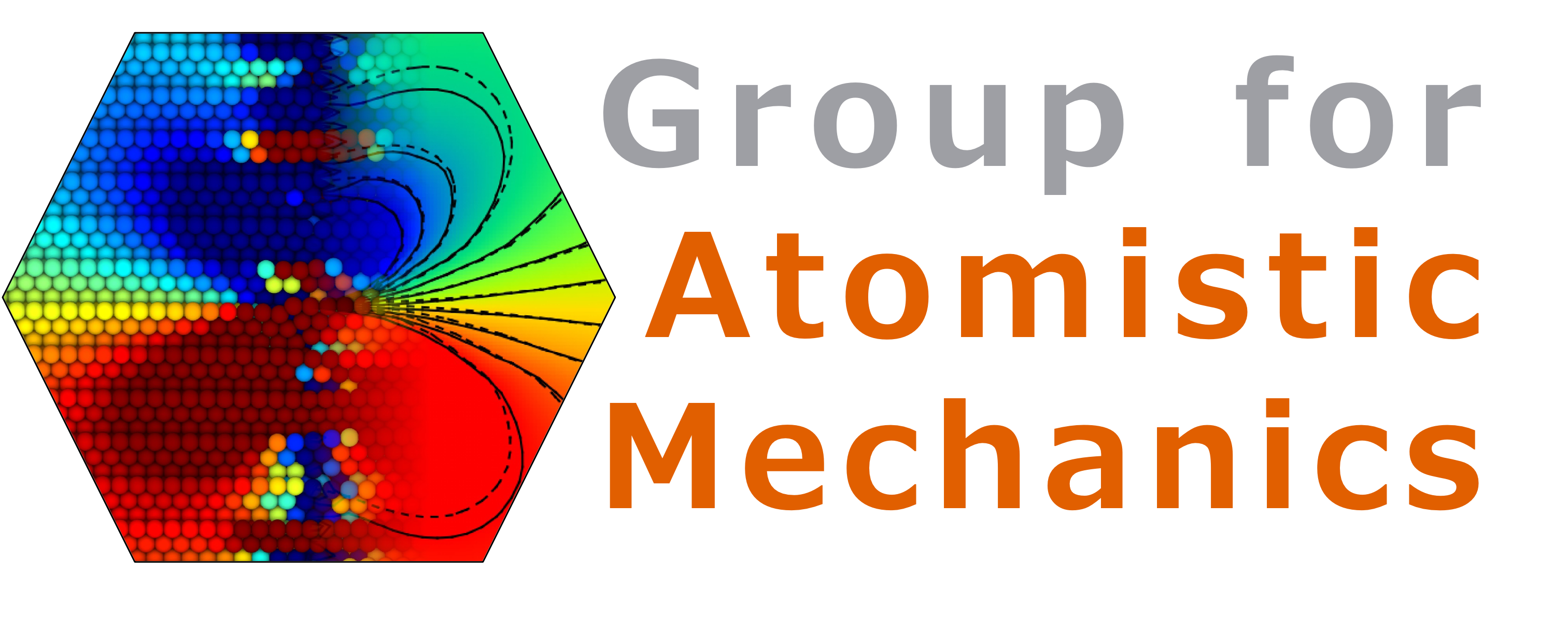Latest news of the group
News

Solute Co-Segregation at Low-Angle Grain Boundaries in Magnesium Alloys: Experiments and Modeling
Our new study in Acta Materialia combines atom probe tomography and atomistic modeling to uncover solute co-segregation mechanisms at low-angle grain boundaries (LAGBs) in a Mg-Al-Zn-Ca alloy. We reveal how calcium, zinc, and aluminum interact with dislocation arrays, with calcium preferentially segregating to tensile regions and zinc/aluminum to compressive zones. These insights provide a foundation for designing advanced magnesium alloys with enhanced mechanical properties through targeted grain boundary engineering. Read the full article.

Unlocking the Potential of Magnesium Alloys: A Review on Atomic-Scale Defect Engineering
Discover our latest review in the Journal of Magnesium and Alloys, where we explore how atomic-scale modeling is reshaping the study of crystallographic defects in magnesium alloys. This work highlights cutting-edge simulation techniques, such as density functional theory and machine learning potentials, and their role in designing next-generation lightweight alloys with superior mechanical properties. Read the full article.

ERC Consolidator Grant AtomicPIE
It is an immense honor for me to see my project AtomicPIE selected for a Consolidator Grant funding by European Research Council (ERC). With my colleagues from CNRS and Universite de Lorraine, we are going for an atomic-scale foundation of a physics-based Interface engineering in crystalline materials.

FFT method brings atomic-scale insight to grain-boundary mechanics
Our new study introduces an FFT-based defect mechanics framework to predict stress fields at high-angle grain boundaries with atomic-level fidelity. Integrating atomistic simulation data with continuum dislocation–disclination theory, the approach captures GB structures in Al and Ag, accurately resolving anisotropic stress distributions. This work advances multiscale modelling and provides a powerful tool for designing materials through precise grain-boundary engineering. See Wazne et al., FFT-based disclination mechanics for high angle grain boundaries and comparisons with atomistic simulations, Mechanics Research Communication 149 (2025) 104529 [open access].

Welcome to Badr
I am glad to welcome BAdr LACHKAR in my group as Doctoral researcher / PhD student. His topic is "Generative Machine Learning for Microstructure Design: An Atomic-Scale-Informed Approach to Interfacial Engineering". This work is supported by the cluster IA ENACT coordinated by the University of Lorraine, an ANR - France 2030 funded regional project that aim at making the Grand Est region a European leader in artificial intelligence.

Enlightening nanoscale plasticity with correlative and scale-bridging modelling
In this newly published work, we developed a modeling approach that connects atomic-scale features with the mechanical behavior of metallic nanosponges. Using real-size, experimentally informed models, we captured how nanoscale structures deform under stress. This approach provides powerful insights into designing stronger, lighter, and more resilient materials. The manuscript is now published: Przybilla et al., Revealing nanoscale plasticity of metallic nanosponges with correlative and scale-bridging 3D microscopy and modelling, Communications Materials 6 (2025) 204 [open access].
